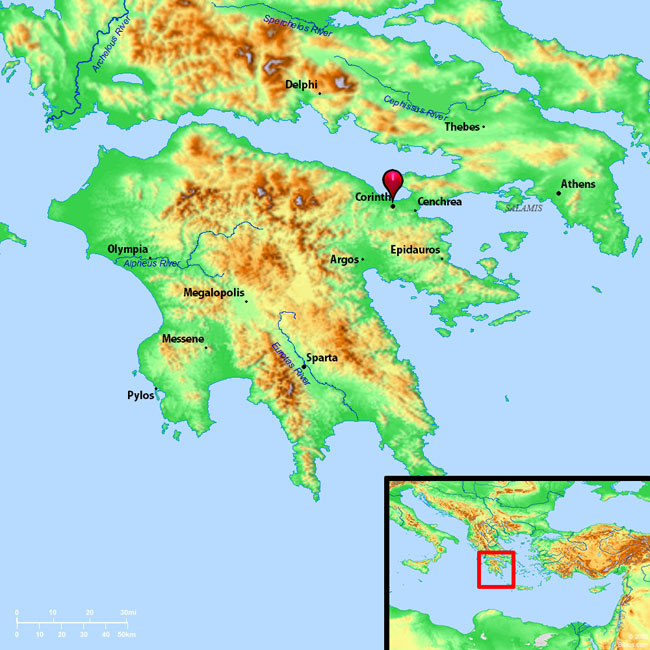



Isa 14:12-15; 2Tim 3:1-5; 2Tim 2:15,24; 1Cor 2:1-5; Jer 9:23-24; 1Cor 1:26-31
ROMANS-123-100728 - length: 55:34 - taught on Jul, 28 2010
Class Outline:
Pastor-Teacher
John Farley
Wednesday,
July 28, 2010
The Doctrine of Spiritual Gifts
Point 1: Setting the scene for Paul’s teaching on the Spiritual Gifts.
The most extensive treatment of the subject of spiritual gifts is found in Paul’s first letter to the Corinthians, chapters 12 through 14.
Corinth was probably the largest city in Greece at the time Paul wrote his letter. It had a population of over half a million people.

Corinth was at a natural crossroads for both land and sea travel.
It was famous as a sports town, and a trading center.
There was a strong connection between, eating, drinking, worship of idols, and sex.
Corinth had a well-deserved reputation for immorality.
In 44 BC, Julius Caesar decides to establish a Roman colony on the site.
The Romans took their poor, former slaves, and their military veterans and “encouraged” them to resettle in colonial cities like Corinth.
One ancient writer referred to the early Corinthian settlers as “those often sold, unstable or disreputable slaves.”
America is the land peopled largely by the descendants of the discarded, the poor, and the slaves. Many of us “came from nothing” as well.
When you “come from nothing”, very often there is this drive inside to prove yourself, and then afterwards to show the world that you have made it.
When Paul came to Corinth to preach the Gospel of Jesus Christ, the city teemed with commerce as the vital link between Rome and its eastern provinces.
The city also hosted an important athletic event called the Isthmian games. This was something like the Olympics or the World Cup today.
Between the reigns of Augustus and Nero (the time of the life of Christ and the missionary journeys of Paul), there was a building boom in Corinth, so that it became “arguably the most dazzling and modern of Greek cities”.
The city was transformed from ruin to riches.
Many inhabitants were so affluent that “wealth and ostentatious display became the hallmark of Corinth”.
Ostentation =
the vulgar display of wealth.
Pretentious display meant to impress others.
Boastful showiness.
A display intended to excite admiration or applause.
Under the category of historical trends, we are in the last days, 2TI 3:1-5.
alazon = boaster, “one who makes more of himself than reality justifies”, or “promises more than he can perform”, often used in the ancient world to describe orators, philosophers, doctors, cooks, and officials.
a person who in every breath is talking about himself.
(courtesy of Pastor R.B. Thieme Jr.)
The word is derived from the description of a vagabond, someone who wanders about the country, an impostor. (Vine)
In ancient times it referred to a quack doctor, a charlatan who at each of his stops tried to trick the people into believing his claims of “curing power” and “healing abilities”.
One of the biggest problems that authentic preachers of the word of God have are the counterfeits, the fakes, that have preceded them.
What about you? What do you look for in a teacher of the word of God?
2TI 4:2
preach the word; be ready in season and out of season; reprove, rebuke, exhort, with great patience and instruction.
So our situation really is not all that different from the situation of the Corinthian church in the first century, 2TI 3:1-5.
The ills of Corinth had crept into the church at Corinth.
What is the mind of Christ on the matter of boasting?